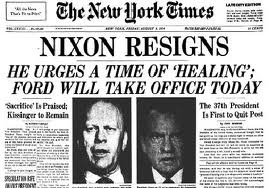The Risks of a Defective Internal Investigation
 Lawyers and compliance professionals repeatedly tout the importance of an internal investigation to protecting a company from devastating consequences from an enforcement action.
Lawyers and compliance professionals repeatedly tout the importance of an internal investigation to protecting a company from devastating consequences from an enforcement action.
An internal investigation is important for the company: (1) to evaluate the facts and the potential legal consequences from the events; and (2) to demonstrate the company’s commitment to remediate any deficiencies in its internal controls and compliance program.
An effective internal investigation will provide the board and senior management with important information to decide what steps the company needs to take and preserve the company and shareholder value.
In the recent GSK-China case, a defective internal investigation was cited in press reports which apparently cleared GSK of any potential problems. Several months later, facts starting coming out which called into question the accuracy of the internal investigation. The disconnect between the internal investigation and the resulting explosion of allegations is inexplicable. How could an internal investigation find no violation and months later the company has to acknowledge that the allegations were accurate?
There are a number of ways in which an internal investigation can be derailed. In many cases, an internal investigation can hit a road block when senior managers restrict the scope of the investigation, or block the investigator’s access to importance documents or witnesses. If outside counsel is conducting the investigation, they face an important ethical quandary—how can they stake their reputation on an internal investigation which was limited in scope and access? In some cases, outside counsel may resign and terminate the investigation. In other cases, they can move forward and limit its conclusions based on the restricted scope and access of the investigation.
These are very treacherous waters in which an outside counsel may get involved. It can be avoided if the internal investigation is properly set up and authorized at the board level, with a specific authorization from the board or a special committee. In most cases, proper board oversight and commitment will prevent an internal investigation from being derailed. If the board’s commitment is equivocal, then the internal investigation can be at risk.
The board has an important role to play when a serious internal investigation is being conducted. Often, the board, a separate committee, and/or individual board members will obtain separate counsel to represent them during an internal investigation. Given the risks of a defective internal investigation, board members are increasingly under scrutiny for exercising reasonable oversight of company operations and its compliance program.
Aside from the risks to the board, a defective internal investigation can provide federal prosecutors with powerful evidence against a company. First, the evidence of obstruction or restriction of the investigation can be used to demonstrate that the company was committed to a criminal scheme and sought to prevent the uncovering of the criminal  conduct. Second, a defective internal investigation is itself evidence of a flawed compliance and ethics program. Third, to the extent an individual or group of individuals block an internal investigation, the government can use such evidence to prosecute individual officers and employees.
conduct. Second, a defective internal investigation is itself evidence of a flawed compliance and ethics program. Third, to the extent an individual or group of individuals block an internal investigation, the government can use such evidence to prosecute individual officers and employees.
The old saying from the Nixon Watergate scandal applies with full force – “The cover up is worse than the crime.”
















1 Response
[…] the Corruption, Crime and Compliance blog, Michael Volkov outlines the risks of a defective internal investigation. Aside from the risks to the board, a defective internal investigation can provide federal […]